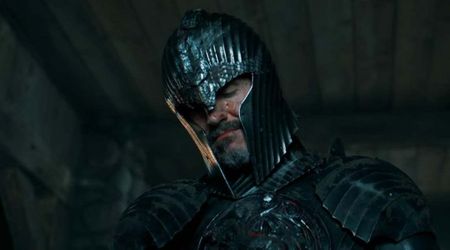'True Detective: Night Country': Decoding chin tattoos and their history in Indigenous community

ENNIS, ALASKA: HBO's 'True Detective: Night Country' presents a mysterious plot revolving around the investigation of two cases separated by six years but linked by several threads.
Primarily focusing on Evangeline Navarro (Kali Reis) and Liz Danvers' (Jodie Foster) journey to discover the truth behind the deaths of Tsalal scientists and Annie Kowtok's murder, the series also highlights the culture and beliefs of the indigenous community.
Throughout the series, there are recurring references to the chin tattoos. In a video clip recorded before her death, Annie Kowtok (Nivi Pedersen) is seen with the chin tattoo.
Evangeline Navarro's sister, Julia (Aka Niviâna) also had a similar tattoo extending from her lower lip to the bottom of her chin. Even Leah Danvers' rebellious step-daughter Liz Danvers wore the temporary tattoo before Liz asked to get rid of it.
What's the meaning of chin tattoos in 'True Detective: Night Country'?
The chin tattoos shown in 'True Detective: Night Country' are known as Kakiniit, though different cultures refer to them by different names. These tattoos are worn by the Indigenous tribes of the Alaskan region, and the tradition dates back to around 10,000 years.
As per Elle, the young girls belonging to the indigenous community used to get tattoos between the ages of 12 and 14 as a sign of passage into womanhood. However, the practice was banned by Missionaries in the 19th and 20th centuries.
Fighting against the stereotypical portrayal of Indigenous women in mainstream media, 'True Detective' aims to depict their true identities, strength, and resilience.
Chin tattoos are being reclaimed by indigenous women in real-life
In the present day, indigenous women like Quannah Chasinghorse and Shina Nova have reclaimed their old traditions by choosing to get facial tattoos.
Speaking of the relevance of the tattoo, Inuit TikTok user Shina Nova said in a video, "The one on my chin represents womanhood, and to honor all the beautiful women that helped guide me every single day."
She added, "Inuit had tattoos as a rite of passage and to show their accomplishments, but it was also to beautify a woman. But in the 20th century, this practice was banned by the Christian missionaries, it was considered evil and demonic. People felt ashamed to have them, it was a forbidden practice."
"But today there are more and more Inuit getting their Tunniit and Kakiniit. We wear them proudly. It's part of our identity, and it's part of who I am. I'm proud to be an Inuit woman," she added.
For indigenous women, these tattoos serve as a means to celebrate their tradition, a connection with their ancestors, and a celebration of their culture.
With 'True Detective: Night Country' focusing on the mythology and traditions of the Inuit community, the significance of the tattoos might get an explanation in its final episode, set for its premiere on Sunday, February 18.










